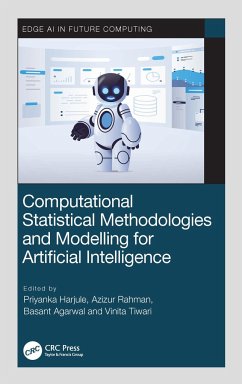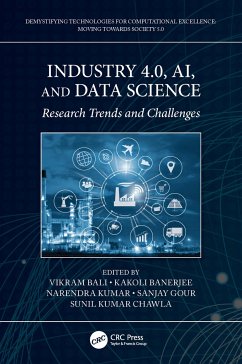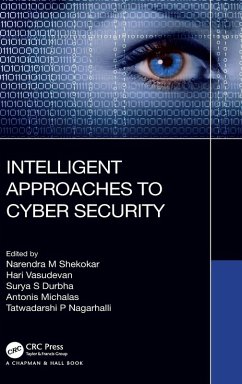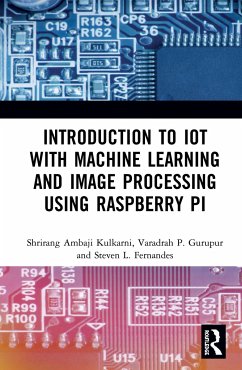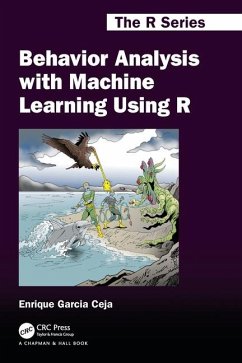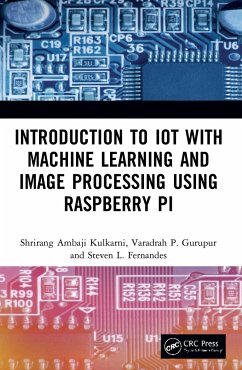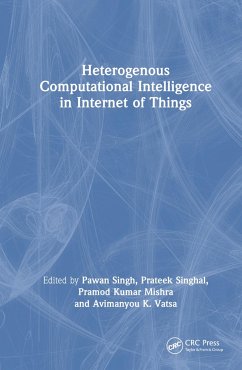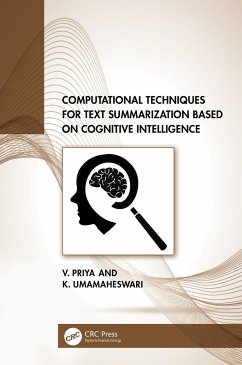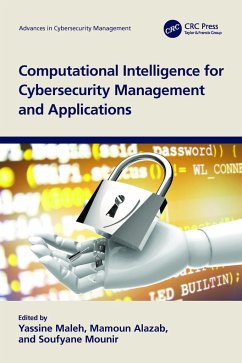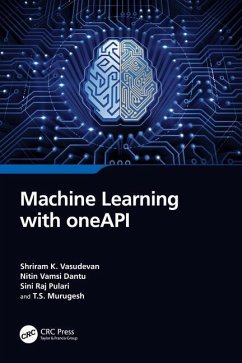Broschiertes Buch
Computational Statistical Methodologies and Modeling for Artificial Intelligence
Versandkostenfrei!
Versandfertig in 1-2 Wochen
Weitere Ausgaben:

PAYBACK Punkte
32 °P sammeln!




This book covers computational statistics-based approaches for Artificial Intelligence. The aim of this book is to provide comprehensive coverage of the fundamentals through the applications of the different kinds of mathematical modelling and statistical techniques and describing their applications in different Artificial Intelligence systems.
Priyanka Harjule is currently working as an Assistant Professor at the Indian Institute of Information Technology Kota (IIIT-Kota), India. She holds a Ph.D. from the Department of Mathematics, MNIT Jaipur under the Technical Education Quality Improvement Programme (TEQIP-II) fellowship. She has worked on text classification problems with different machine learning classifiers. Her recent research work includes the analysis of survey data on online education using various statistical techniques. Her research interests include Special functions, Fractional calculus, Mathematical and Statistical Modelling, Machine learning, and Image Processing. Azizur Rahman, PhD, is an applied statistician and data scientist with expertise in both developing and applying novel methodologies, models and technologies. He is the Leader of the "Statistics and Data Mining Research Group" at Charles Sturt University. Azizur earned his Ph.D. from UC and worked at several universities, including the University of Adelaide. He has more than 150 publications, including a few books. The Australian Federal and State Governments fund his research, and he serves on a range of editorial boards. His academic excellence has also been well recognised with several awards, including the best research award by the World Business Institute and research excellence and RED Achievement awards at CSU. Basant Agarwal is an Assistant Professor at the Indian Institute of Information Technology Kota (IIIT-Kota), India. He holds a Ph.D. and M.Tech. from the Department of Computer Science and Engineering, Malaviya National Institute of Technology Jaipur, India. He has more than 9 years of experience in research and teaching. He has worked as a Postdoc Research Fellow at the Norwegian University of Science and Technology (NTNU), Norway, under the prestigious ERCIM (European Research Consortium for Informatics and Mathematics) fellowship in 2016. He has also worked as a Research Scientist at Temasek Laboratories, National University of Singapore (NUS), Singapore. His research interest is in Artificial Intelligence, Cyber-physical systems, Text mining, Natural Language Processing, Machine learning, Deep learning, Intelligent Systems, Expert Systems, and related areas. Vinita Tiwari is currently is an Assistant Professor in the Department of Electronics and Communication, the Indian Institute of Information Technology Kota (IIIT-Kota). She received her B.Tech degree in Electronics and Communication Engineering from M.B.M Engineering collage, Jodhpur followed by a Master's and a Ph.D. degree in Communication Engineering and High-Speed Optical Communication respectively under the faculty development program of BITS-Pilani, Pilani Campus. She has almost fourteen years of experience in teaching and research. Her research interest includes high-speed optical link designs, advanced modulation techniques, Soliton communication, mathematical modeling, blockchain, etc.
Produktdetails
- Edge AI in Future Computing
- Verlag: Taylor & Francis Ltd
- Seitenzahl: 390
- Erscheinungstermin: 19. Dezember 2024
- Englisch
- Abmessung: 234mm x 156mm x 21mm
- Gewicht: 590g
- ISBN-13: 9781032181424
- ISBN-10: 1032181427
- Artikelnr.: 72105635
Herstellerkennzeichnung
Libri GmbH
Europaallee 1
36244 Bad Hersfeld
gpsr@libri.de
Für dieses Produkt wurde noch keine Bewertung abgegeben. Wir würden uns sehr freuen, wenn du die erste Bewertung schreibst!
Eine Bewertung schreiben
Eine Bewertung schreiben
Andere Kunden interessierten sich für





